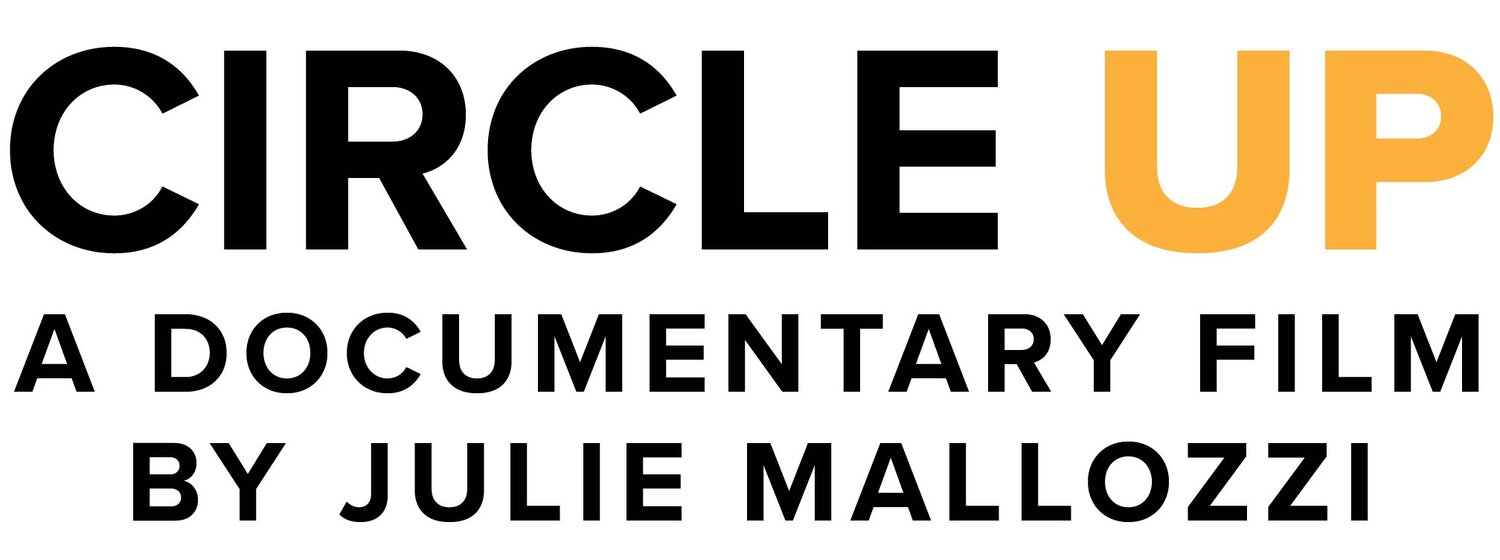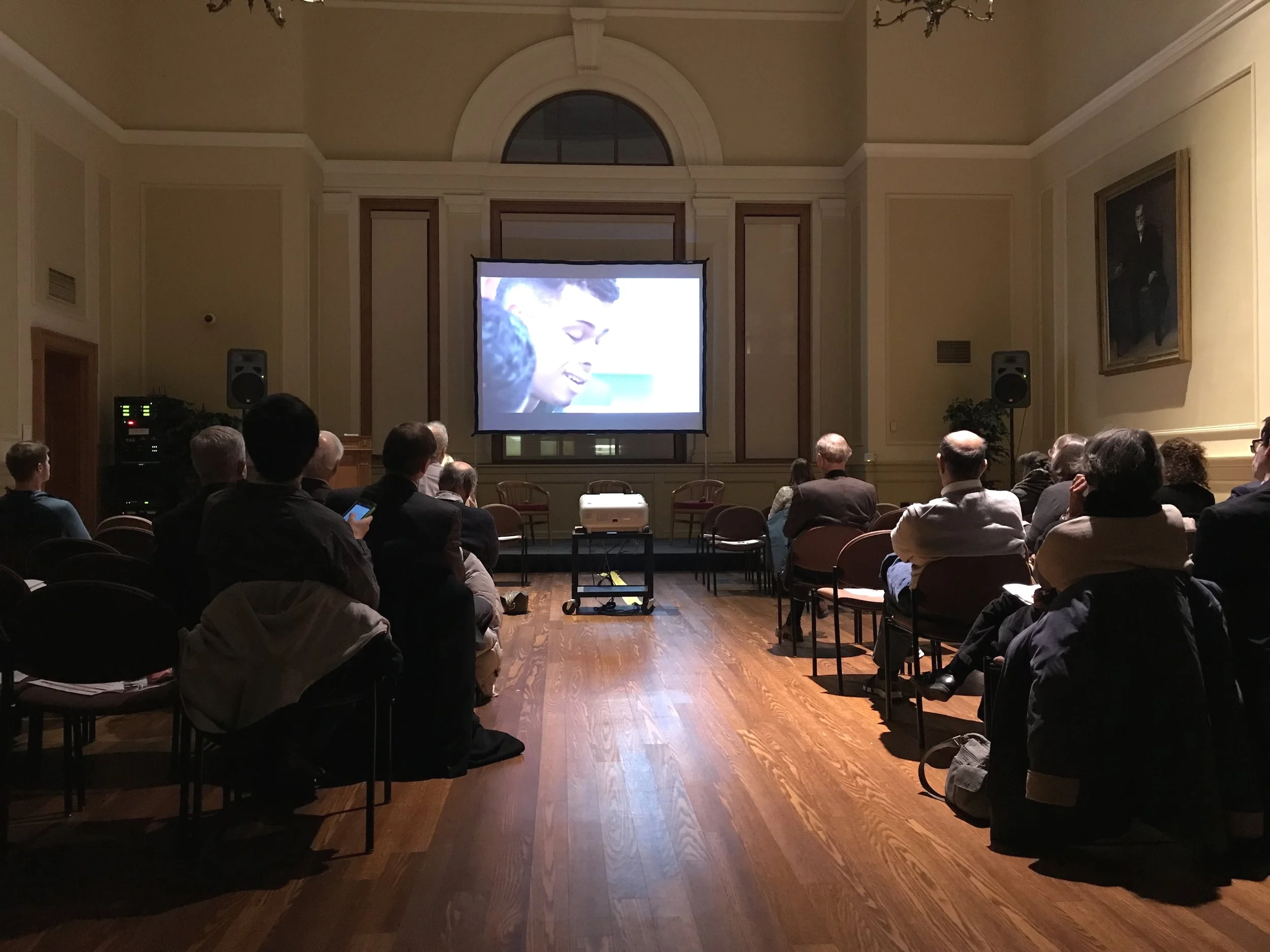by Genevieve Hunt
Last night filmmaker Julie Mallozzi, our film subjects Janet Connors and Clarissa Turner, and I presented a screening discussion of CIRCLE UP at the Social Law Library in Boston’s John Adams Courthouse before an audience of judges, lawyers and other court professionals. As we walked through the hushed library past classical wood friezes and shelves filled with heavy, leather-bound law books, I remembered a scene in CIRCLE UP where Janet remarks that she felt her son’s life didn’t matter at all in the courtroom – that the that the whole trial process seemed to her driven by the prosecutor, the state, and the defendant. Would this audience of judges and lawyers be more sympathetic to the victim families tonight?
My worries were unfounded as the audience was hushed and attentive, passing tissues as Janet recounted the details of her son’s murder and Clarissa tearfully remembered the moment she spontaneously forgave her son’s murderers in court. During the panel discussion, Janet and Clarissa held the audience spellbound as they shared their journey through grief and anger to forgiveness and healing after the brutal murders of their sons. They spoke movingly about the transformative power of forgiveness and the desire to help create a positive way for harm-doers to show accountability and return to their community. Janet and Clarissa stressed that their desire to spare other families from the pain of losing a child motivated them to continue sharing their story and helping young people find ways to turn away from revenge violence.
Audience members were deeply appreciative of Janet and Clarissa’s sharing of their emotional journey and asked questions about the restorative justice experience. One audience member thoughtfully asked if there was any communication with the families of harm-doers; both Janet and Clarissa spoke about the sorrow and pain shared by victim and defendant families. The panel discussion ended on a positive note when a psychiatrist from McLean Hospitalsaid he would like to share the film with his patients because"Forgiveness can't be prescribed but it's a wonderful medicine."
As we left the screening, I reflected on how much more powerfully film conveys the emotional impact of a court trial than a court transcript or a newspaper story. It offers court professionals a way to think about the consequences of traditional justice processes and begin to consider how bringing victims and harm-doers face-to-face in a restorative justice setting may serve both sides more effectively.
We have had a lot of interest from the legal community in CIRCLE UP. As more states and municipalities grapple with criminal justice reform and ways to reduce the prison population, we’ve gotten more requests for screenings from state legislators and law schools around the country (including Harvard, Drexel and New York Law School). We hope to do more these kinds of screenings and discussions about the role that forgiveness and personal accountability can play in reducing recidivism and increasing healing among crime victims and their communities.
Thank you to Social Law Library Executive Director Robert Brink for bringing this emotional narrative inside a courthouse!





